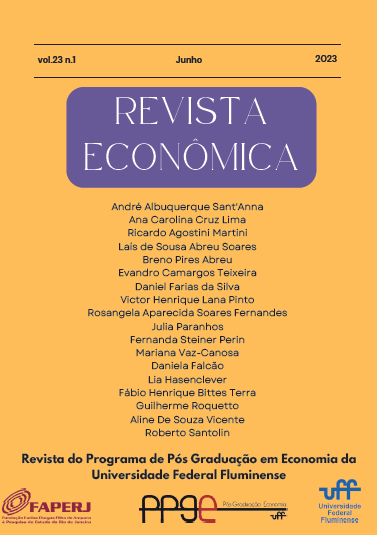Tamanho da família e estado de saúde das crianças: evidências para o Brasil
DOI:
https://doi.org/10.22409/reuff.v23i1.53011Abstract
Taking into consideration that children play a prominent role in the present and future socioeconomic development process, this study aims to analyze the relationship between Brazilian family size and children's health status. Specifically, it is believed that children with a greater number of siblings have fewer resources available for their development, since these are diluted among family members, which results in a worse level of well-being. Data from the 2008 National Household Sample Survey (PNAD) were used. By estimating an Ordered Probit model, considering the general model (all children in the sample) and those belonging to early childhood (0-4 years), second childhood (5-9 years) and third childhood (10-14 years), the research proved the hypothesis that the child belonging to a larger family nucleus is the one with the worst health status.
Downloads
Downloads
Published
Issue
Section
License
Autores que publicam nesta revista concordam com os seguintes termos:
a.Autores mantém os direitos autorais e concedem à revista o direito de primeira publicação, com o trabalho simultaneamente licenciado sob a Licença Creative Commons Attribution que permite o compartilhamento do trabalho com reconhecimento da autoria e publicação inicial nesta revista.
b.Autores têm autorização para assumir contratos adicionais separadamente, para distribuição não-exclusiva da versão do trabalho publicada nesta revista (ex.: publicar em repositório institucional ou como capítulo de livro), com reconhecimento de autoria e publicação inicial nesta revista.
c.Autores têm permissão e são estimulados a publicar e distribuir seu trabalho online (ex.: em repositórios institucionais ou na sua página pessoal) a qualquer ponto antes ou durante o processo editorial, já que isso pode gerar alterações produtivas, bem como aumentar o impacto e a citação do trabalho publicado (Veja O Efeito do Acesso Livre).

